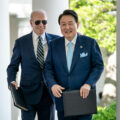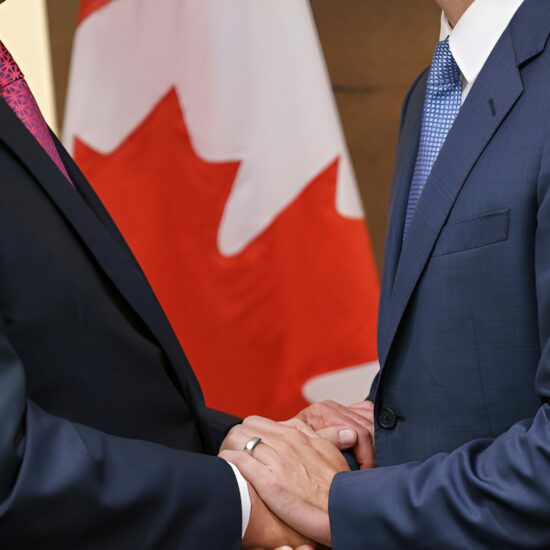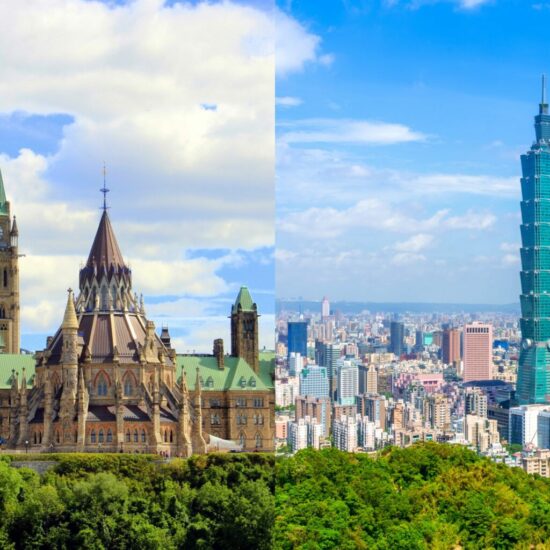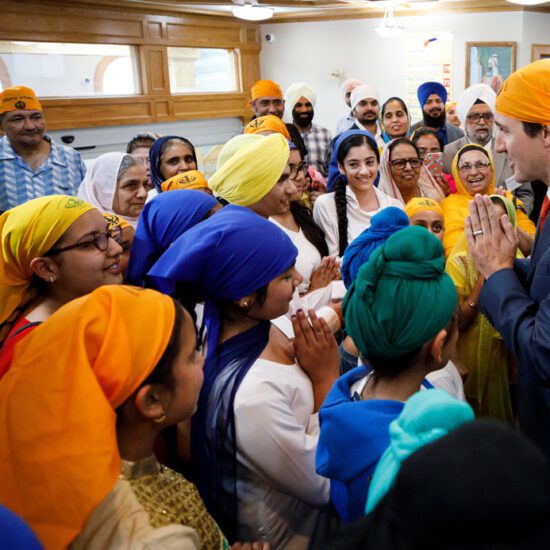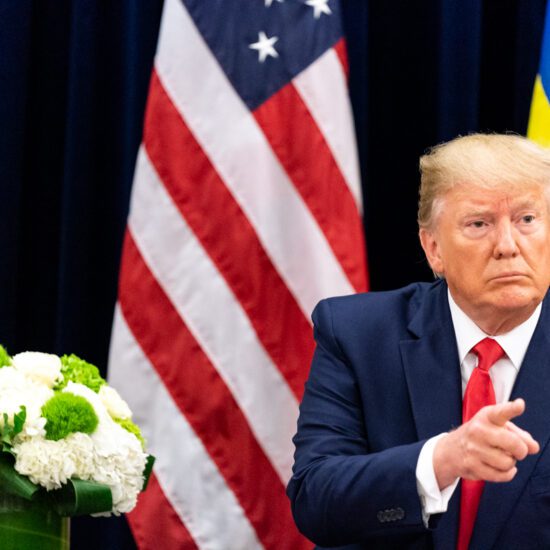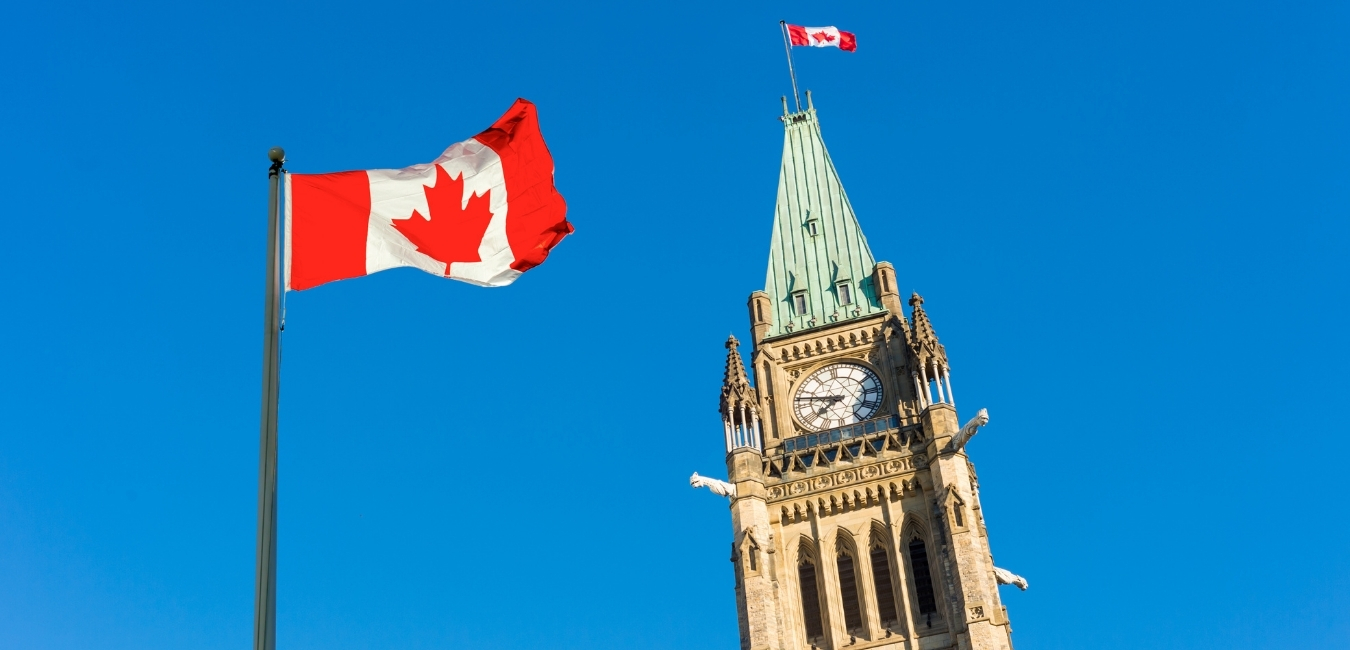
The Institute for Peace & Diplomacy (IPD) is pleased to announce our upcoming panel ‘A Multi-Partisan Consensus on Canada’s National Interests?’ The discussion will take place on April 12th from 4:00 PM to 5:00 PM EST and can be watched live on Zoom.
At least since the premiership of Stephen Harper, foreign policy debates between Canada’s political parties have centred on rival visions of the country’s national identity. In other words, the Liberal and Conservative parties have not only advocated for different policies, but have also advanced clashing interpretations of Canada’s role in the world. Liberals consider contributing to multilateralism and peacekeeping to be important national aims, while Conservatives are more likely to deride the United Nations as a dysfunctional club of dictators. Justin Trudeau has tried to toe a careful line when it comes to China, while Erin O’Toole has argued for a much more muscular approach.
In short, Canada does not merely face a question over whether to prioritize its interests or its values in an increasingly uncertain world. Rather, there is no objective consensus in Ottawa on what Canada’s national interests actually are. The failure of Canada’s political class to develop a consensus vision of the national interest comes with several risks, particularly at a time when the international order is shifting. Inconsistent engagement and wild swings in foreign policy positions with every change in government will hamper Canada’s ability to ensure that the future international order aligns with its core imperatives on the world stage. In other words, Canada risks becoming an effective bystander where its interests are at stake. The absence of a substantive, consistent and multi-partisan foreign policy has already begun to damage Canada’s influence in global affairs, having lost two consecutive bids for a UN Security Council seat under governments of differing stripes.
There is clearly a need for continuous and constructive analysis, debate and dialogue on the nature of Canada’s long-term national interests. This panel will discuss the state of play in Canada’s partisan foreign policy discourse, elaborate upon the necessity for Canada’s political parties to forge a consensus understanding of the national interest, and explore what some of the contours of such a national consensus might look like.
This event will be conducted primarily in English but will feature some commentary in French.
Registration is required to attend. Reserve your spot for free, here.
Panelists
Dr. Ann Fitz-Gerald, Director of the Balsillie School of International Affairs and Professor in Wilfrid Laurier University’s Political Science Department
Dr. Ann Fitz-Gerald has worked at both King’s College, London University’s International Policy Institute, and at Cranfield University, where she was the Director, Defence and Security Leadership. During her time at Cranfield, Ann led the UK-Government funded Global Facilitation Network for Security Sector Reform and Cranfield’s Centre for Security Sector Management. Ann is widely published on issues concerning conflict, national security and security sector governance. She holds Visiting Professor at other universities including Nkumba University (Uganda), Jimma University (Ethiopia), Njala University (Sierra Leone) and Queen’s University (Canada).
Dr. Chris Kilford, Director of the Canadian International Council
Dr. Chris Kilford is a Fellow at the Queen’s Centre for International and Defence Policy, a Research Fellow with the Conference of Defence Associations Institute and President of the Canadian International Council, Victoria Branch. During his 36-year military career in the Canadian Army, Dr. Chris Kilford served throughout Canada and in Germany, Afghanistan and Turkey in various command, instructional, staff and diplomatic roles. From July 2009 until July 2010, he was posted to the Canadian Embassy in Kabul, Afghanistan as the Canadian Deputy Military Attaché and then to the Canadian Embassy in Ankara, Turkey as the Canadian Defence Attaché from July 2011 until August 2014. His articles and book chapters focused on Canadian defence and foreign policy issues, plus Turkish and Middle Eastern security matters, have appeared in numerous Canadian and international publications and he is a frequent media commentator.
Dr. Jean-Christophe Boucher, Assistant Professor at University of Calgary
Dr. Jean-Christophe Boucher is an Assistant Professor at the School of Public Policy and Department of Political Science at the University of Calgary. He is currently a director of research in civil-military relations at the Canadian Defence and Security Network funded by the Social Science and Humanities Research Council. A fellow at the Canadian Global Affairs Institute; a research Fellow at the Centre for the Study of Security and Development at Dalhousie University; Senior Fellow at the Centre interuniversitaire de recherche sur les relations internationales du Canada et du Québec. He specializes in international relations, with an emphasis on Canadian foreign and defence policies, international security, and methodology.
Jocelyn Coulon, Advisor at the Institute for Peace & Diplomacy and Research Fellow at the Montreal Centre for International Studies (CERIUM)
Jocelyn Coulon is an analyst, author and researcher, specializing in peace operations and Canadian foreign policy. He was a foreign affairs advisor for Justin Trudeau in 2014-2015, and a senior policy advisor to foreign minister Stephane Dion in 2016-2017. He is the author of Canada is Not Back: How Justin Trudeau is in Over His Head on Foreign Policy, Lorimer, 2019. In the past few years, he has published a number of books, including, in 1998, Soldiers of Diplomacy. The United Nations, Peacekeeping, and The New World Order and in 2020, À quoi sert le Conseil de sécurité des Nations Unies? He is a member of the International Institute for Strategic Studies (IISS) and a Fellow at the Canadian Global Affairs Institute (CGAI).
Moderator
Dr. Zachary Paikin, Research Fellow at the Institute for Peace & Diplomacy
Dr. Zachary Paikin is a Researcher in EU Foreign Policy at the Centre for European Policy Studies in Brussels (CEPS). He is also Senior Visiting Fellow at the Global Policy Institute in London, UK. Paikin is an expert with the Canada-Russia Research Initiative based at the University of Victoria and a collaborator with the Network for Strategic Analysis, part of the Mobilizing Insights in Defence and Security (MINDS) programme of the Department of National Defence of Canada. He is an affiliated expert with the Minsk Dialogue Council on International Relations, as well as a member of the Cooperative Security Initiative, a project co-launched by GLOBSEC and the Friedrich Ebert Foundation’s Vienna office with the support of the Organization for Security and Cooperation in Europe (OSCE).

